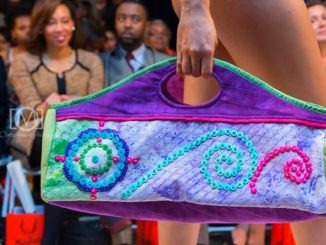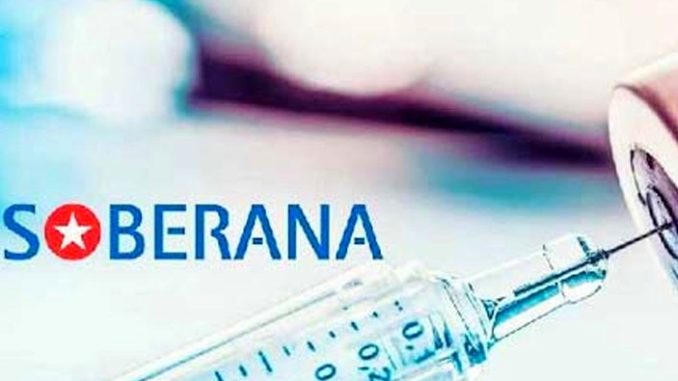
Cuba began this week the phase III clinical trial of Soberana 02, the first anti-covid vaccine produced in Latin America and the Caribbean that reaches the most advanced phase before approval for general use.
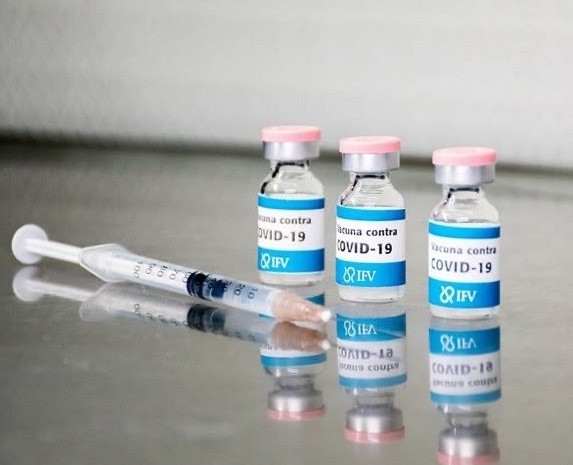
The realisation of this important step for the island was made possible after approval by the Cuban regulatory agency for the control of medicines, medical equipment and devices.
The Cuban vaccine is one of 16 vaccine candidates in the world that are in the third phase of clinical trials and one of five that Cuba is developing to immunise the population against the Sars-Cov 2 virus.
According to the World Health Organisation, 76 vaccine candidates are currently in clinical trials, and 187 vaccine candidates are in the preclinical trials.
Of these 76 vaccines in clinical trials, 24 are subunit vaccines, which are the vaccine platform in which Soberana 02 and the rest of the Cuban vaccines are classified.
Therefore, Soberana 02 enters a select list of vaccine candidates that have passed to Phase III, which the island’s authorities consider a milestone and a pride for Cuban science.
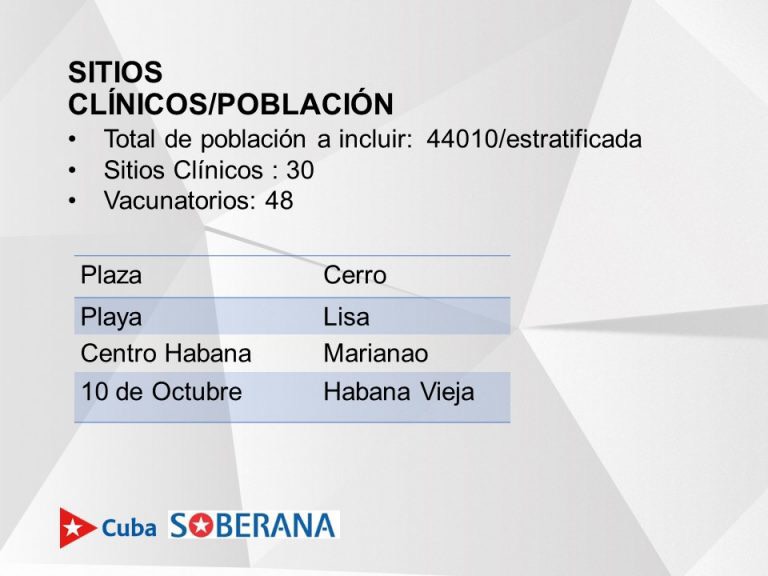
What are the characteristics of the Phase III trial?
Some 44,000 people in eight municipalities in Havana are participating in the vaccination, through more than 30 clinical sites and 48 vaccinator sites.
The trial is designed for volunteers aged 19 to 80 years with no known history of SARS-CoV-2 infection. However, are excluded from the study, people who have had a febrile illness or acute infection illness in the seven days prior to vaccine administration ; pregnant, puerperal or breastfeeding women ; and people with decompensated diseases that limit vaccination based on clinical judgment.
The volunteers will be divided into three groups : a placebo group, another group that will receive two doses of the Soberana 02 vaccine candidate, and a third group that will receive a two-dose schedule of Soberana 02 with a combined dose of Soberana 01.
This is a multicentre, adaptive, parallel-group trial, according to members of the team of researchers leading the development of this immunogen, produced by the Finlay Vaccine Institute.
Adverse effects will be assessed during a one-hour post-dose observation at the clinical site, followed by active and passive surveillance with outpatient follow-up until 28 days after each dose.
This phase is also the first of the efficacy trials, as previous trials have demonstrated immune response, Dr Vicente Vérez Bencomo, director general of the Finlay Institute, told the press.
“We might think that it is going to protect the people, but that immune response has to demonstrate that it actually protects them. Therefore, the efficacy has to be proven, and this is done in vaccinated and unvaccinated people, and in vaccinated people with a placebo. We have to show that those who are not vaccinated get sick and those who are vaccinated do not get sick. And that’s part of the crucial stage of a vaccine”, he said.
“Obviously in phase III”, he added, “we have to measure the efficacy of the vaccine, because it is very possible that Soberana 02 will be effective against the strain that is circulating today, but we have to be prepared to know what efficacy we would need for it to be highly effective against any new strain”.
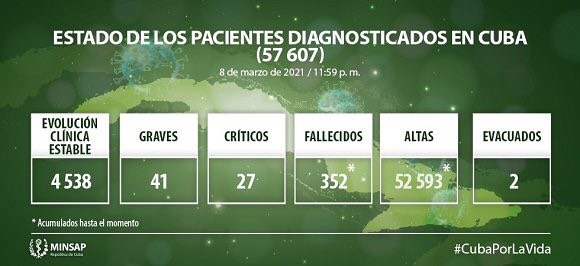
How does Cuba intend to produce the millions of doses needed for its population?
According to the authorities of the Centre for Molecular Immunology, conditions are being prepared to produce between one and two million doses per month, which should make it possible to immunise 11 million Cubans in six months.
A total of 30 million doses are needed, bearing in mind that the vaccination schedule is three doses.
According to statements at a press conference, the Cuban government is making an effort to make the vaccination a reality before the end of the year, as the country’s precarious economic situation and the difficult access to resources due to the US financial embargo on the island make it difficult to acquire supplies abroad.
However, the scientists assured that Cuba now has the necessary resources to be able to guarantee the remaining stage of the project’s development and, in addition, to be able to guarantee the vaccination of Cubans, which is the main objective.
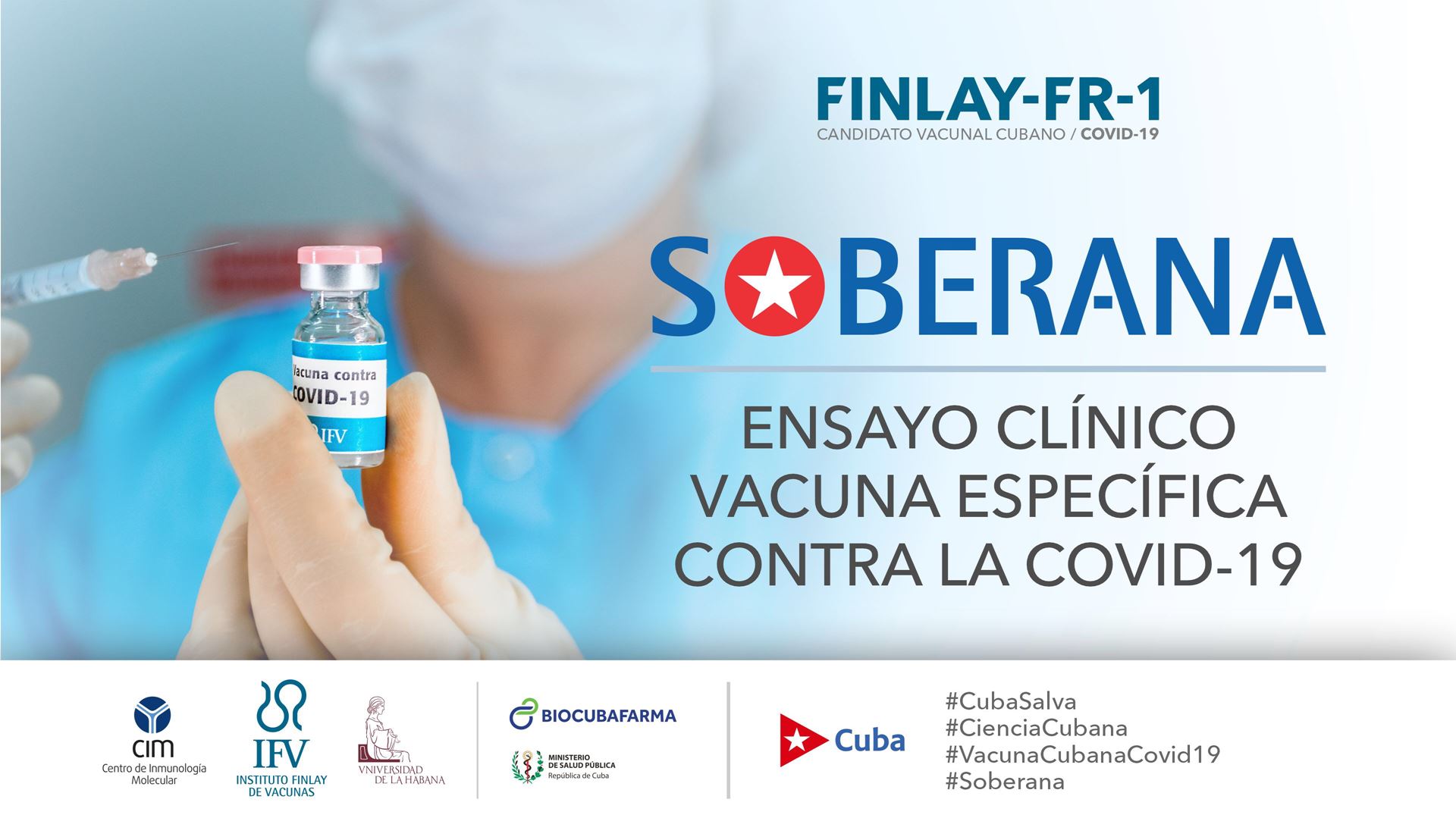
How many vaccine candidates against Covid 19 is the Caribbean island developing?
Cuba’s Covid-19 vaccine programme started in May 2020 and clinical studies started in August.
In this period, the country has developed five vaccine candidates : Soberana 02, Soberana 01, Abdala, Mambisa and Soberana Plus.
The latter, the most recent addition, is one of the formulations evaluated in the Soberana 01 project, but will be developed as a booster vaccine and used in convalescent patients or in combination with other vaccines.
Of these five candidates, the most advanced after Soberana 02 is Abdala, which is preparing to start phase III this March in eastern Cuba.
“Abdala is based on the same platform used to create the recombinant Hepatitis B vaccine”, explained Dr Verena Muzio Gonzalez, director of Clinical Research at the Centre for Genetic Engineering and Biotechnology. “The studies were designed to test two vaccination schedules : a long one, which involves receiving the vaccine every 28 days, and a short one, which includes three doses every 14 days”, she said.
Abdala‘s phase III trial will begin when the national regulatory authority will approve it, although this is expected to be in March.
Once authorized, 42,000 people in the eastern provinces of Santiago de Cuba and Guantanamo will participate in the vaccination programme.
Abdala‘s phase III trial has several objectives, including demonstrating the vaccine’s efficacy and ability to protect vaccinated individuals, as well as assessing the safety of the immunogen.
If it moves to phase three later this month, Cuba would be the first country in the region to have two of its own vaccines almost ready for general immunisation against the Sars-Cov 2 virus.
NOTE FROM THE EDITOR
The world is going through an unprecedented health crisis and although KARICULTURE.NET is a magazine dedicated to the culture and traditions of the Caribbean islands, a year ago, we published an article on Interferon, used in Cuba in the treatment of this disease to show our solidarity. This time, we are publishing another article written by our Cuban journalist, Amelia Duarte de la Rosa, on the progress of research in our region and more specifically in Cuba to definitively stop this global Covid-19 epidemic.

